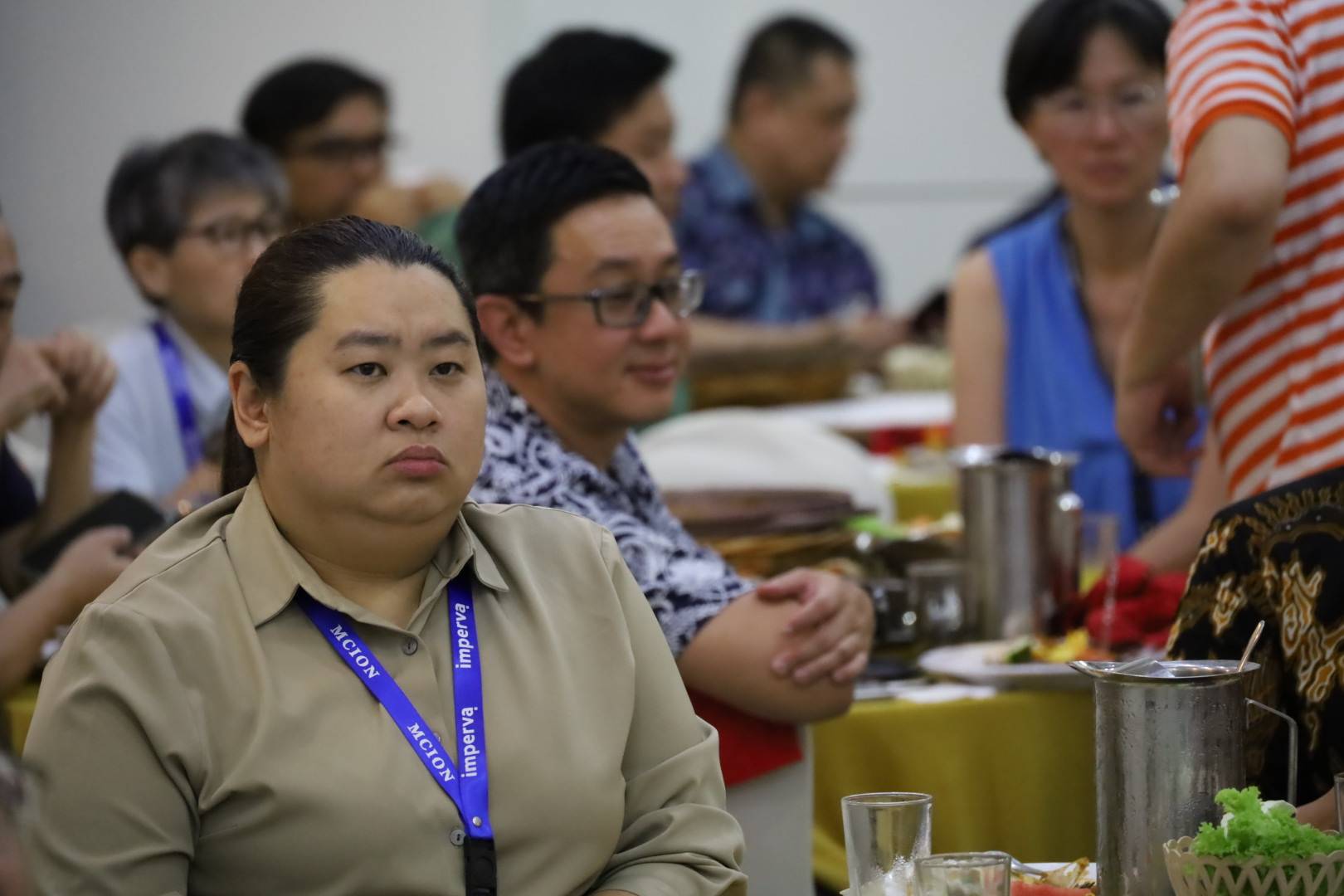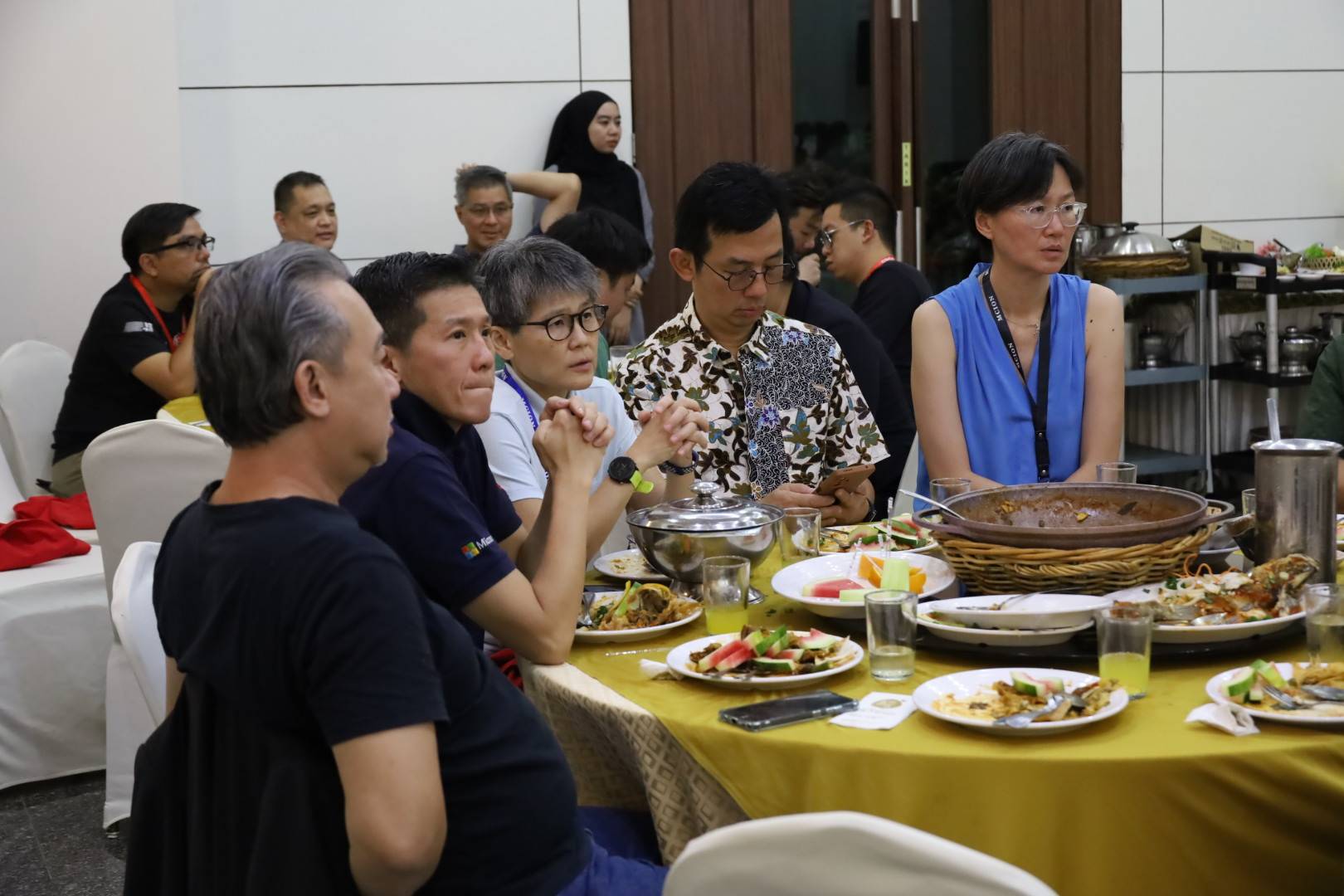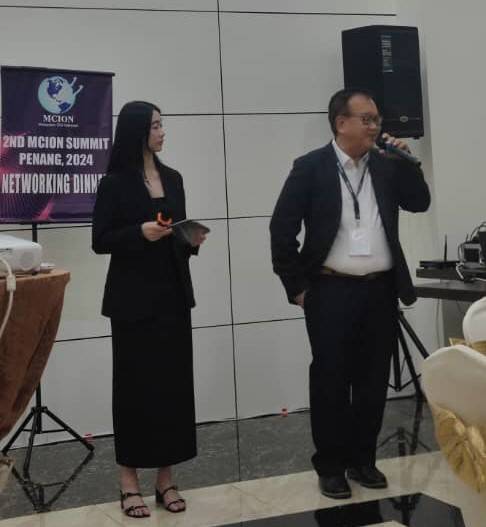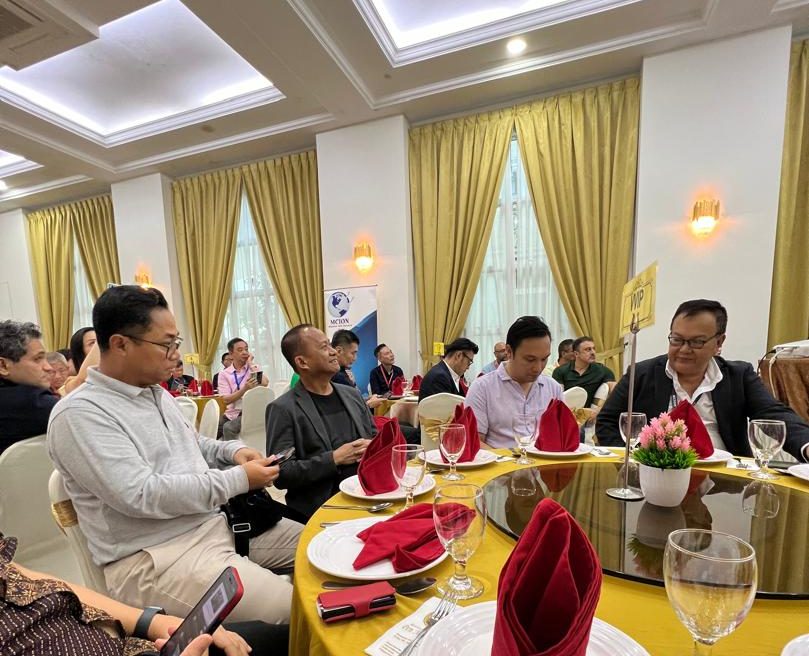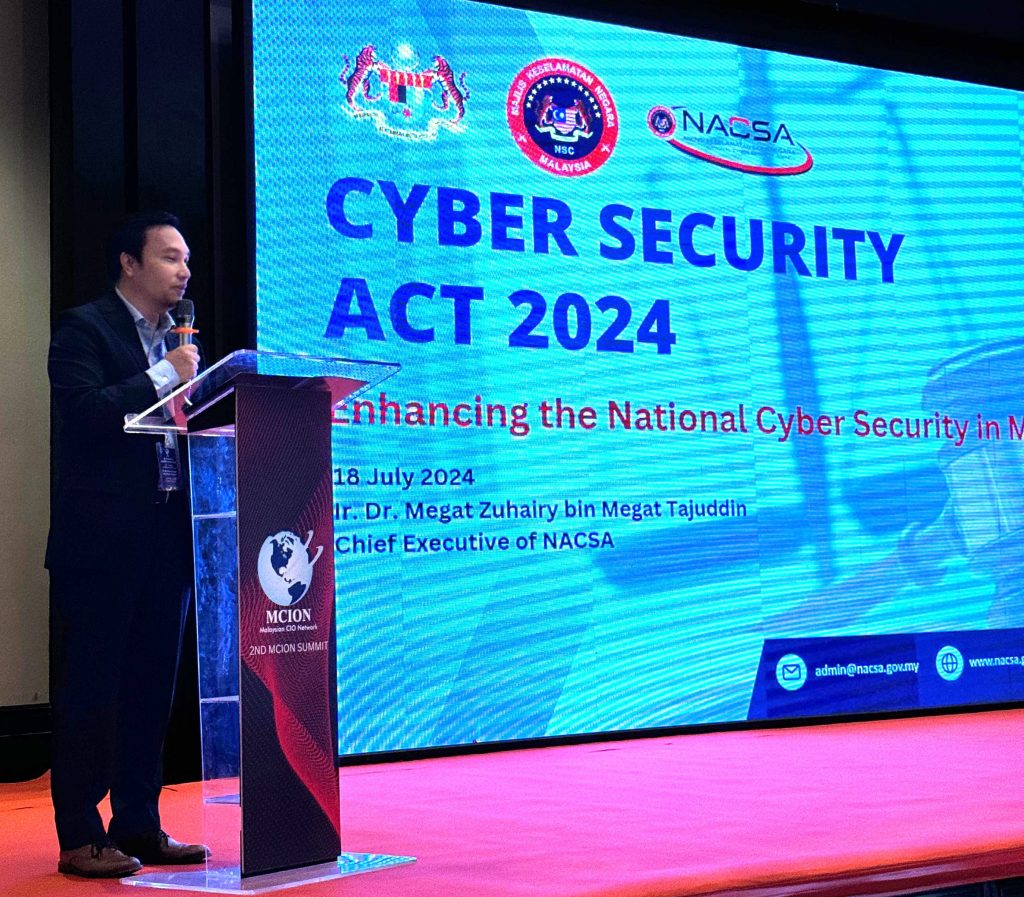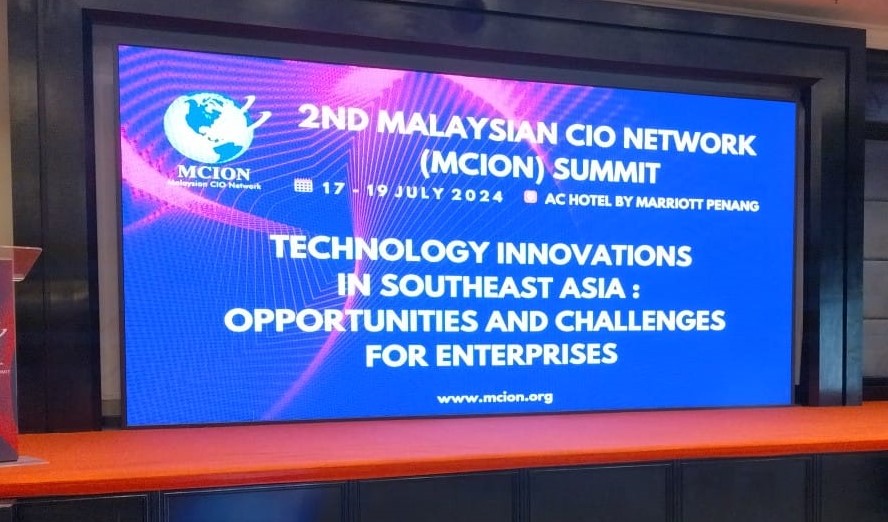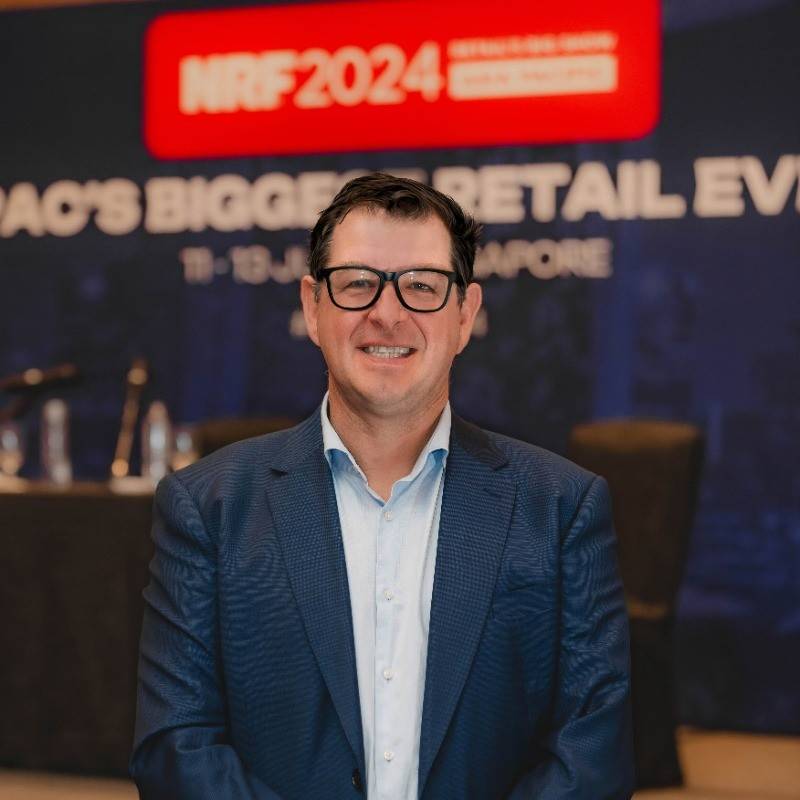The 2nd Malaysian CIO Network or MCION Cybersecurity Summit began with a dinner to welcome participants and allow vendors and tech and business decision makers, a chance to network.
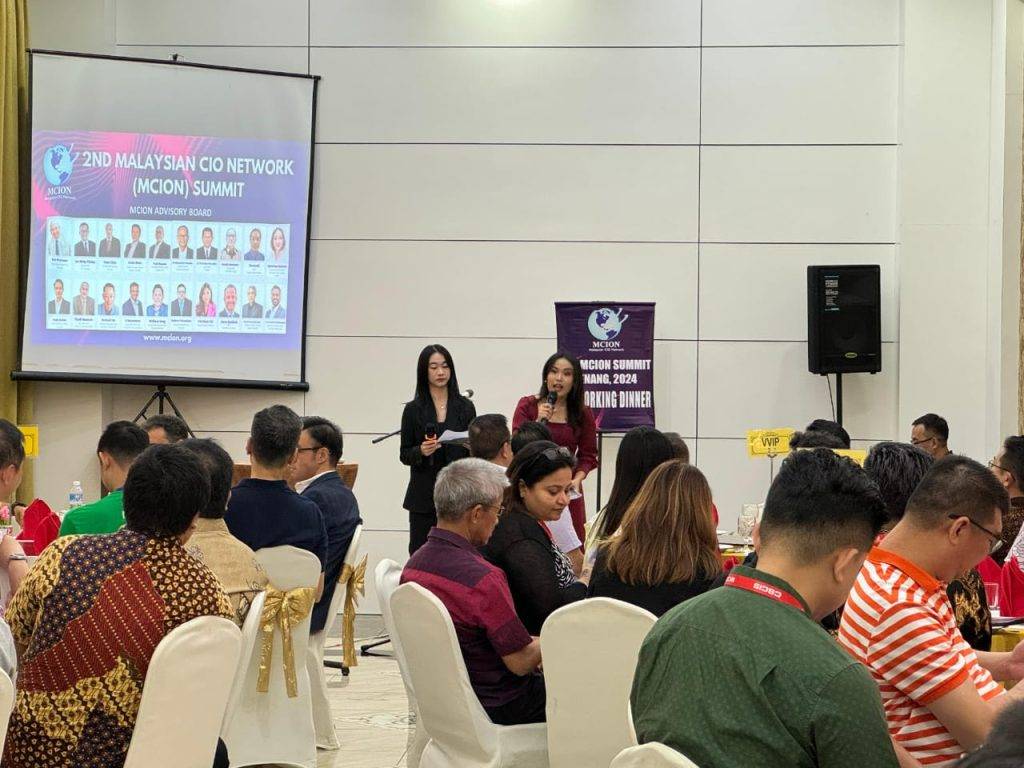
The two emcees for the first night networking event.
NACSA’s CEO, Ir. Dr. Megat Zuhairy Bin Megat Tajuddin, as guest-of-honour, gave a brief intro, while MDEC’s Ng Jun Wen shared about what his portfolio, Digital Exports, was about.
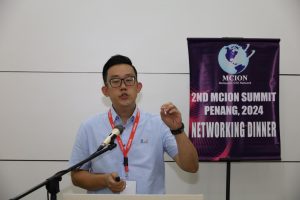
Jason Liew, flexHR
flexHR, a leading human capital management and workforce engagement solutions provider also took the opportunity to introduce what the system was capable of.
CEO, Jason Liew, shared that his solution is able to analyze data points like engagement with employees, past company data, and trends of past employee engagements to predict employee turnover.
It’s objective is to identify patterns, and proactively act upon potential issues before they occur with the aim of ultimately improving retention rates. For example, it predicts when employees may leave their positions, enabling the company to better plan their recruitment activities and replacements.
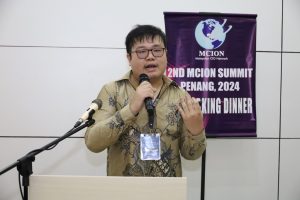
Rio Ferdinand Kiantara, Advisia Group
Advisia Group’s CEO Rio Ferdinand Kiantara introduced the notion of AI solutions for marketing and communications analytics, that use a variety of data like organization data from an omni-channel source, social media, Google Maps, and even structured and unstructured data from clients.
Advisia Group describes itself as a market action company and by leveraging AI for marketing and communications analytics via its product called Advia AI, it focuses on use cases like market research, customer satisfaction analysis, campaign performance optimization, and competitive intelligence.
Notably, it became an official partner to an IBM Watson startup programme and received funding of an undisclosed sum. “We are one of the few Indonesian startups that they are interested in.”
Rio also added, “We believe in the power of small language models (SLM). Before, when I worked at Shopee, most of the AI was powered by large language models (LLM). The idea is to democratize this… that is the vision that I have with my team.”
He also shared the reason why he started this journey – the challenges that many small businesses have in utilizing the power of AI. In contrast, Rio observed that most enterprises are already in pilot phase.
Pictures of the networking dinner.
Day 1 Morning Keynotes
NACSA chief, Dr. Megat, and Commissioner of Telkom Indonesia, Dr. Marcelino Pandin, opened the conference with their keynotes about cybersecurity and the Southeast Asia tech landscape, respectively.
Although the act seems to be drafted and endorsed by the Parliament in a rush, we want to make it as perfect as possible. It is a promise by the government that if there is a need for us to revise the act, we will do it and see to it.
Dr. Megat outlined Malaysia’s very important Cybersecurity Act 2024, which was gazetted on 24th June, 2024, and is slated to be in-force after the completion of four important regulations.
“We must ensure we finish these four regulations by end of July,” Dr. Megat had shared.
He also pointed out that the government is open to revising the act, based upon feedback from stakeholders.
“Although the act seems to be drafted and endorsed by the Parliament in a rush, we want to make it as perfect as possible. It is a promise by the government that if there is a need for us to revise the act, we will do it and see to it.
“I understand that everyone is adjusting inputs and feedbacks… it’s very important for us to make sure that this act has certain standing and will actually (help) achieve the direction of the government, industry, and everyone to make the whole cyberspace, safe.”
The Southeast Asia tech landscape according to Telkom Indonesia
Telkom Indonesia’s Dr. Marcelino Pandin called out dual use technology, data lakes, sustainability, authority to operate, and financing schemes as being highly instrumental for how technology innovation will pan out over the next five years in Southeast Asia.
What does this spell overall for competition between the countries here?
He expects competition to intensify in the coming years. While it is currently focused on areas like e-commerce, platform applications, and digital services, he expects it to shift towards areas like chip manufacturing. He commented that countries like Indonesia, Vietnam, and Thailand are developing their own domestic chip-making capabilities already.
Green technology is another area of emerging competition with Australia and China vying to become the “king of green technology” in the region. There would be particular focus upon data centers and technologies that can keep them running cool and with better energy efficiency.
Dr. Marcelino also observed a shift in the focus of startup funding in Southeast Asia – if before they relied heavily on valuations, now investors are asking for more testable predictions and protections.
There is also a growing preference for startups that incorporate AI technology into their applications. AI as part of the “flavor” of the startup would help attract investors’ attention.

